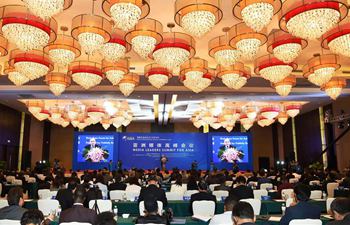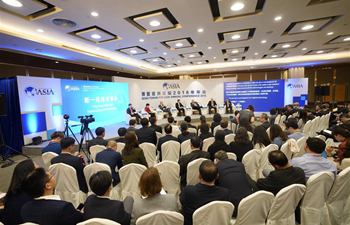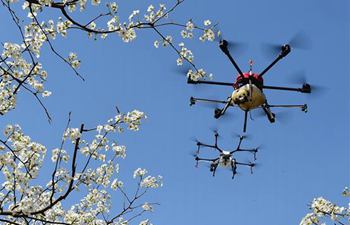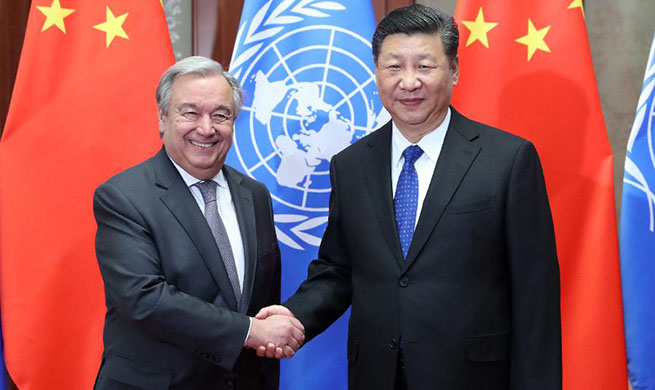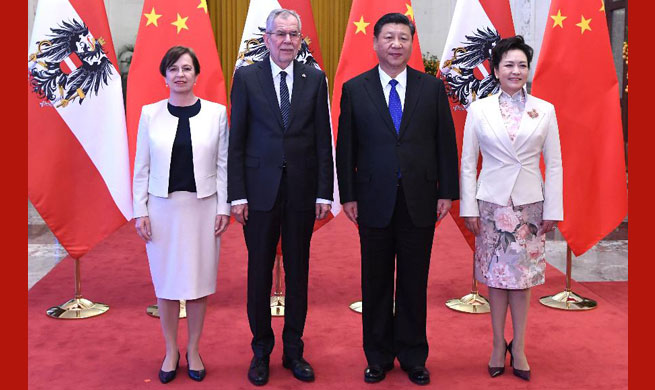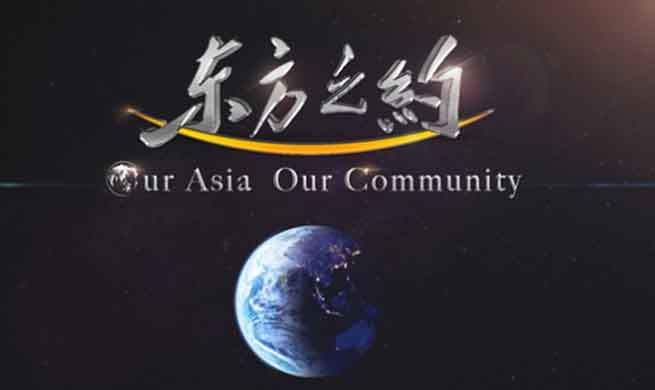BEIJING, April 9 (Xinhua) -- Anxiety over China's rising economic and technological power is the ultimate reason behind recent U.S. moves on trade disputes with China, analysts here said.
Deterring Chinese exports is not the real goal of the U.S. aggressive trade moves, according to Ye Fujing, head of Institute of International Economic Research of the Chinese Academy of Macroeconomic Research.
"The hidden agenda behind the U.S. trade deficit and forced technology transfer claims is to check China's high-end industrial development and its ongoing economic transformation," Ye said.
Less than two days after China matched the earlier 50 billion U.S. dollars tariff wager on the U.S. side with a similar one of its own, the Trump administration threatened extra duties on Chinese goods worth 100 billion dollars.
In its national security strategy last year, the U.S. administration painted China as a rival power eroding U.S. security and prosperity, a country whose share of the world's economy was only 1.8 percent 40 years ago but is now the world's second largest economy with leading technologies in many sectors.
China's rapid advancement in key technologies has made it a target in the U.S. 301 Section investigation, accusing China of forced technology transfer from U.S. companies via requirements for joint-ventures and shareholding.
The U.S. report hinted at the Made in China 2025 plan, with its proposed tariff list covering the same manufacturing sectors as the plan, such as aerospace, information and communication technology, robotics and machinery.
"The aim of the Made in China 2025 plan is certainly to strengthen China's manufacturing industries via technological innovation, but the plan itself has not violated any principles," said Huang Qunhui of the Chinese Academy of Social Sciences.
"The plan doest not say that government must step into technological transfer, it defines the role of the government as the creator of an open and coordinated system for technological innovation," Huang said.
Meanwhile, by putting U.S. products such as soybeans, automobiles and aircraft on the list of China's retaliatory tariff plan, China's resolute response has already hit the United States where it hurts.
"Imposing tariffs on soybeans and other farm produce would make a massive impact, although their per unit prices are relatively low," said Bai Ming, a researcher with the Chinese Academy of International Trade and Economic Cooperation.
Aiming at items such as automobiles and aircraft also "threw a punch" at U.S. manufacturing industries, Bai said.
In 2016, the United States saw 62 percent of its soybeans, 17 percent of its automobiles and 25 percent of the aircraft made by Boeing exported to China, according to the commerce ministry.
"China is in the process of further opening its service sector. The United States risks losing the whole Chinese market if it pushes too hard," said Yu Miaojie, deputy director of National School of Development at Peking University.
China has said it will take "comprehensive countermeasures" to defend its interests if the United States continues its unilateral protectionist practices.
China's service trade deficit with the United States last year stood at 54.1 billion dollars as U.S. enterprises gained tangible benefits in sectors including tourism, education, film and publication.
The U.S. tariff list is harming its own enterprises. It will affect many high-tech and advanced manufacturing products made by U.S. firms operating in China, according to professor Wang Xiaosong with Renmin University of China.
If the trade friction escalates, U.S firms are expected to see losses in their share in the Chinese market, he said.
From 2010 to 2015, U.S. companies saw one-third of their overseas sales growth coming from China, U.S. official data showed.
"China will stick to its opening-up policy firmly without being affected by external pressure", said commerce ministry spokesperson Gao Feng at a press briefing.
On the back of such resolution, China is expected to further open up its market and expand imports.
Experts believe that the United States will not be able to enjoy the dividend from China's opening-up if it keeps escalating trade friction, and will eventually get caught in a trap of its own making.







